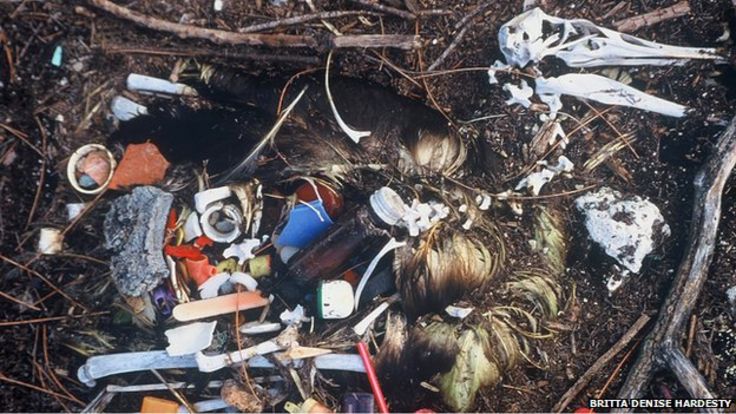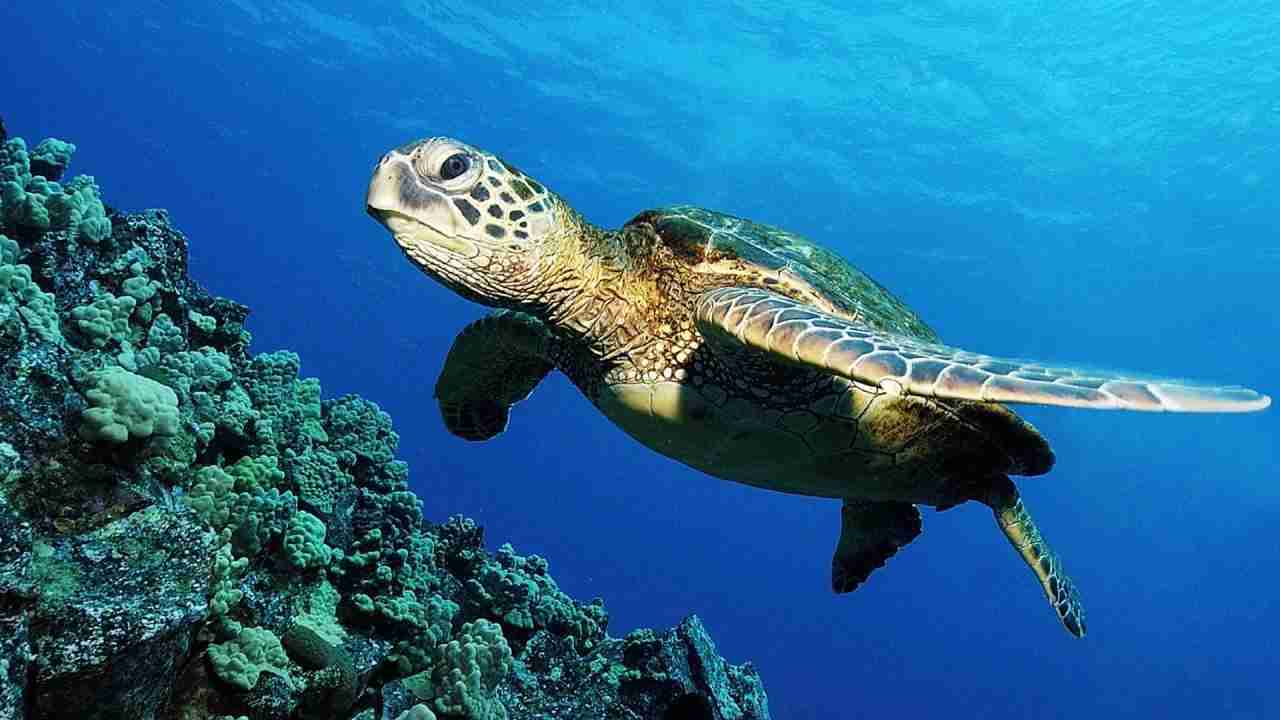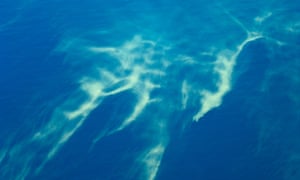1. Icelandic Whale Meat Arrives in Japan Via New Route
This week, the Arctic's untraveled Northeast Passage saw some
unfavorable activity. The first major cargo shipment of seafood passed through
the passage but, it was hauling 1,800 tons of endangered fin whale meat. The
ship took this route to avoid whaling protesters and ports that are
closed to ships transporting whale meat. The fin whale is an endangered species
under the International Union for Conservation of Nature. Although
the Convention on Trade in Endangered Species (CITES) marks
the transportation of whale meat illegal, the rule does not apply to
Iceland, Norway, and Japan. Japan is one of the few countries where whale meat
can still be found. Read more...
-----------------------------------------------
2. Seabirds Blighted by Plastic Waste

In 1960’s, fewer than 5% of sea birds were found with plastic debris in their system. Today, the number stands at around 90%. The largest number of afflicted seabirds are not in the area where the majority of floating plastic gathers but, where the seabird population is the highest, primarily in a band in the Southern Ocean, near Australia, South Africa and South America. "To the foraging bird, a discarded plastic cigarette lighter or a shiny bottle top can look like a fish". Once this waste is ingested, it will destroy the animal's digestive system. Read more...
-----------------------------------------------
3. Hawaii First to Harness Deep Ocean Temperatures for Power
 Hawaii, a state highly dependent on
imported fossil fuel, is looking to the ocean as a source of renewable energy. The state plans to
meet its goal of 100% renewable-energy by the year 2045. Hawaii
inaugurated a small but operational ocean thermal energy conversion (OTEC) plant
this week, making it the first in the world. The plant converts the temperature
difference between the sea surface and deep waters into electricity. To learn more about the technology and energy production in the plant read here...
Hawaii, a state highly dependent on
imported fossil fuel, is looking to the ocean as a source of renewable energy. The state plans to
meet its goal of 100% renewable-energy by the year 2045. Hawaii
inaugurated a small but operational ocean thermal energy conversion (OTEC) plant
this week, making it the first in the world. The plant converts the temperature
difference between the sea surface and deep waters into electricity. To learn more about the technology and energy production in the plant read here...
-----------------------------------------------
4. Elusive Sea Creature Spotted After 31 Years
 The rare Allonautilus scrobiculatus, (a species of mollusk) has been spotted after 31 years off
the coast of Papau New Guinea. Initially, this mollusk was misidentified by
scientists who categorized it as a
nautilus species. However, this mollusk has a really unique shell – its
golden in color with thick, slimy hair. Peter Ward, a professor of earth and
spaces sciences at the University of Washington came across the mollusk first
in 1984. Ward reports that “ the Allonautilus is so rare likely because it is
completely reliant on scavenging to survive”. The mollusk’s habitat is
threatened by deep-sea mining operations, which could potentially wipe out the
species. Read more...
The rare Allonautilus scrobiculatus, (a species of mollusk) has been spotted after 31 years off
the coast of Papau New Guinea. Initially, this mollusk was misidentified by
scientists who categorized it as a
nautilus species. However, this mollusk has a really unique shell – its
golden in color with thick, slimy hair. Peter Ward, a professor of earth and
spaces sciences at the University of Washington came across the mollusk first
in 1984. Ward reports that “ the Allonautilus is so rare likely because it is
completely reliant on scavenging to survive”. The mollusk’s habitat is
threatened by deep-sea mining operations, which could potentially wipe out the
species. Read more...
-----------------------------------------------

The University of Central Florida (UCF) began work promoting the green sea turtle populations in the 1980s. As a result of this work, green sea turtles have back for 2 years out of three to lay their eggs at the beaches of Archie Carr National Wildlife Refuge. From 50 nests a year, the tally is now 12,026 nests along 13 miles of beach. The beaches are visited by green turtles, loggerhead sea turtles and leatherback sea turtles. UCF ensures that the beaches at Archie Carr refuge are hospitable for its ocean-visitors. Read more...
-----------------------------------------------
6. Mako Shark Phones Home, Revealing Epic Journey
 In February, researchers from the United States and Cuba put a satellite tag on a rare longfin mako shark found in norther Cuba. Five months later, the shark was found 5,500 miles away off of the coast of New Jersey. It appears that the shark followed the Gulf Stream into the Gulf of Mexico, looped through the Bahamas, and then deep into the Atlantic Ocean. Scientists found that this shark traveled thought the same location as other mako sharks tagged in experiments. It is possible that this location is a mating or feeding hotbed. Read more...
In February, researchers from the United States and Cuba put a satellite tag on a rare longfin mako shark found in norther Cuba. Five months later, the shark was found 5,500 miles away off of the coast of New Jersey. It appears that the shark followed the Gulf Stream into the Gulf of Mexico, looped through the Bahamas, and then deep into the Atlantic Ocean. Scientists found that this shark traveled thought the same location as other mako sharks tagged in experiments. It is possible that this location is a mating or feeding hotbed. Read more...
-----------------------------------------------
7. Oceans Warmed More Than Previously Thought
This week, a study published in Nature Communications reported the impact that climate change will have on an essential ocean species. The bacteria trichodesmium is known for surviving in nutrient-poor parts of the ocean and driving the nitrogen fixation process. This process converts nitrogen gas into material that can be used by a number of marine species. It is possible that the increasing climate could drive the bacterial into reproductive overdrive. The large populations would consume a large quantity of nutrients that are in limited supply in the ocean. Read more...
-----------------------------------------------
Be sure to "LIKE" http://facebook.com/SeaSave to ensure our "Week in Review" is delivered to your newsfeed every Thursday.
Sea Save Foundation is committed to raising awareness of marine conservation. The Week in Review is a team effort produced by the Sea Save staff to provide a weekly summary of the latest in marine research, policy, and news.

